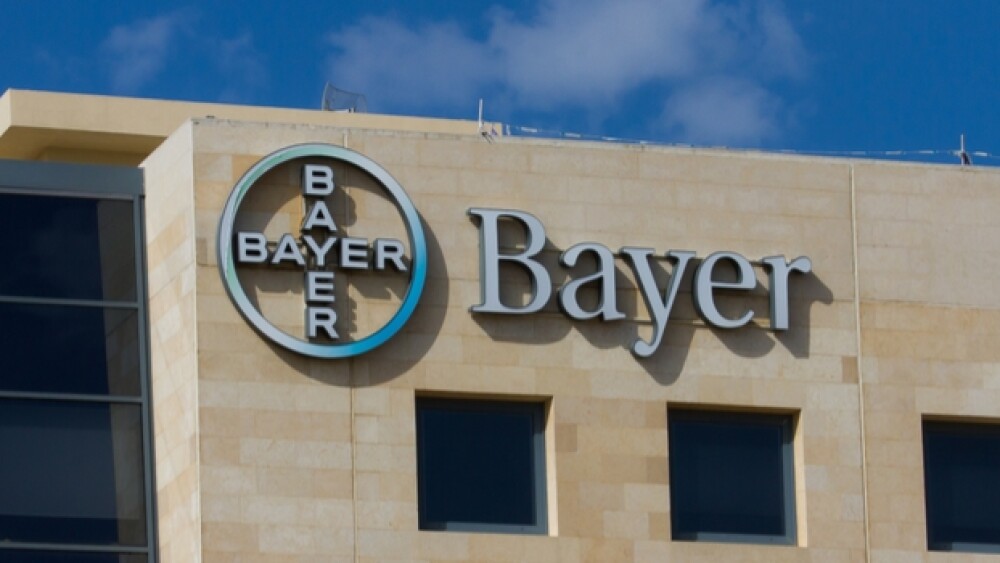Finerenone is an oral, non-steroidal selective mineralocorticoid receptor antagonist (MRA).
photobyphm / Shutterstock
Bayer’s investigational drug finerenone reduced the risk of cardiovascular outcomes in patients with chronic kidney disease and type 2 diabetes significantly better than placebo, according to late-breaking data from a pre-specified exploratory subgroup analysis of the FIDELIO-DKD Phase III study.
Patients with chronic kidney disease and type 2 diabetes have an increased risk of progression to kidney failure and are also at a high risk of cardiovascular events. Likewise, these patients have a higher risk of increased cardiovascular morbidity and mortality compared with the general population.
Gerasimos Filippatos, M.D., National and Kapodistrian University of Athens, Greece, and co-principal investigator of FIDELIO-DKD, said in a statement, “These new findings for the investigational drug finerenone suggest the potential to reduce the risk of cardiovascular events in patients with chronic kidney disease and type 2 diabetes, with and without a history of cardiovascular disease.”
Finerenone is an oral, non-steroidal selective mineralocorticoid receptor antagonist (MRA). The investigational drug may reduce negative effects associated with mineralocorticoid receptor (MR) overactivation, a key driver of cardiovascular and kidney damage through fibrotic and inflammatory processes. The investigational agent moved into Phase III clinical trials in mid-2015.
In the Phase III study, investigators enrolled more than 13,000 patients with varying severities of chronic kidney disease and type 2 diabetes. The research comprises two studies – FIDELIO-DKD and FIGARO-DKD – and compared finerenone with placebo plus standard of care in regard to renal and cardiovascular outcomes.
Data from the trial were recently presented during a Late-Breaking session at the American Heart Association’s (AHA) Scientific Sessions 2020 and were published in Circulation.
In 2,605 patients with a history of cardiovascular disease, a lower proportion of patients in the finerenone arm experienced the composite cardiovascular outcome (17.7 vs 20.2%; hazard ratio [HR]=0.85; 95% CI, 0.71–1.01). Similar observations were found in 3,069 patients without a history of cardiovascular disease (8.9 for finerenone vs. 10.2% for placebo; HR=0.86; 95% CI, 0.68–1.08).
The FIDELIO-DKD study also found that treatment with finerenone significantly reduced the risk a composite of time to cardiovascular death, non-fatal myocardial infarction, non-fatal stroke or hospitalization for heart failure versus placebo (HR=0.86; 95% CI, 0.75-0.99; p=0.0339) over a median follow-up period of 2.6 years.
“These findings underscore the life-threatening connection between chronic kidney disease and cardiovascular disease,” said Joerg Moeller, M.D., Executive Committee Member of Bayer AG’s Pharmaceutical Division and Head of Research and Development. “Reducing cardiovascular risk is vitally important for people living with chronic kidney disease and type 2 diabetes is one of the many reasons we are pursuing FDA approval for finerenone.”
Dr. Moeller added that completion on the cardiovascular outcomes study with finerenone, FIGARO-DKD, is due by mid-2021. Data from this study will hopefully support the advancement of a new treatment options for this patient population, said Dr. Moeller. Phase III data from the FIDELIO-DKD study have already been presented at the American Society of Nephrology’s (ASN) Kidney Week 2020 in October and were published in the New England Journal of Medicine (NEJM). Bayer has since submitted applications for marketing authorization of finerenone in both the U.S. and the EU.
A week prior to the release of the trial data, Bayer submitted regulatory applications for finerenone in the U.S. and the EU for patients with chronic kidney disease and type 2 diabetes. The applications were based on positive data from the Phase III FIDELIO-DKD published in the NEJM.





